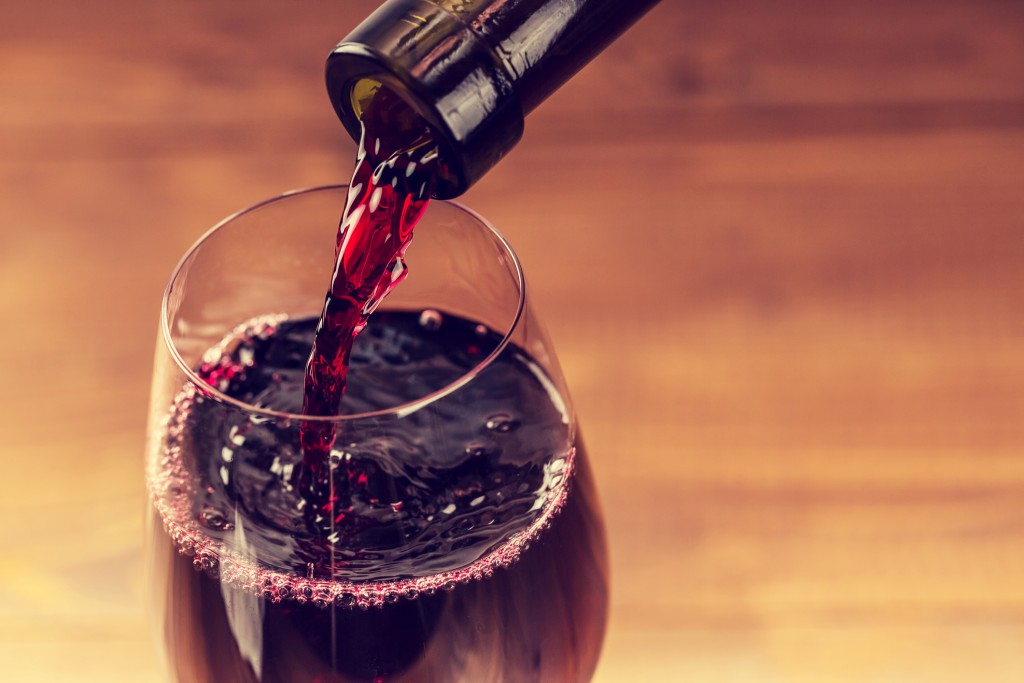Most people associate weddings with Champagne; it is the customary choice for wedding toasts. But wines are just as customary and should be considered with care when planning your reception menu. Even if your knowledge of Port wine is limited, it can be easy to select the right wine for your wedding reception.
Choosing the wine is an important detail, one that should not be overlooked. You sample the food and the cake, why would you not sample the wine? An experienced caterer will have many wine options to share with you while you are sampling their dinner and appetizer menu. Keep in mind; you are not limited to the selection provided by your caterer. Sometimes, going on your own with your wine purchase can save you money on your overall reception bill (we’ll discuss that more later). Whatever you choose, make sure that you sample the choices and pick the wine that you feel is going to be the best compliment to your wedding.
First, we must admit that it’s impossible to give advice on selecting wine that will work for everyone. Which wines you choose for your wedding and how much you order depends on many factors; here are a few things to consider when deciding on wine for your wedding:
What kind of wine do you like? How about your friends and family? Do they prefer red, white, rosé, sparkling, or a dessert wine? Would your guests enjoy one or two really nice glasses of wine to sip as they socialize? Or, is wine not that important to your guests?
What are you serving for dinner? The heavier and more flavorful the dish, the more full-bodied and complex the wine can be. So if you are serving beef in a hearty sauce, then by all means, bring on the Cabernet Sauvignon or Bordeaux. If you are serving a delicate white fish, you should offer a light bodied white – a Sauvignon Blanc would be the perfect choice.
White wine top picks: Don’t overlook Sauvignon Blanc, a super-versatile white that goes splendidly with seafood, chicken, eggs, vegetables, and salads. Red wine top picks: Cabernet Sauvignon is the most popular red wine in America, built best for hearty meats. Don’t forget Rosé: Dry rosé is crisp and fruity, without the sweetness of white zinfandel and other blush wines, and pairs beautifully with salads, poultry, pork, tuna, salmon, and even sirloin. Rosé is perfect in both warm and cool weather, day and night and is a favorite for weddings.
Is your reception scheduled for the middle of summer or the dead of winter? The season could make a difference in what wine you decide to serve your guests-are you trying to warm them up or cool them off? If you are hosting an outdoor reception and the weather is expected to be warm, plan accordingly and serve a refreshing, lighter wine like a Pinot Gris or Sauvignon Blanc, rather than a heavy Chardonnay. For red wine drinkers, you might offer a Grand Cru Beaujolais or a Pinot Noir. You might even consider a dry rosé.
Two wines that go very well with many different types of foods and that can be served year-round are Sauvignon Blanc for a white and, among reds, Pinot Noir. Both of these are lighter in body and less fruity than Chardonnay, Cabernet Sauvignon, and Merlot. They’re also excellent when served as aperitifs.
Unless you know your guests will enjoy your creative selection of wines, stick with what people know and love best — a white such as Chardonnay or a Chardonnay-based wine and a red such as Merlot. If you prefer to veer just a little bit off the beaten path, try a light, food-friendly white such as Sauvignon Blanc and a red Zinfandel.
You may want to cater to guests’ expectations. Many of your guests who drink wine regularly may limit their choices to what they are familiar with. If you want to ensure that guests will have a wine they are familiar with, then your whites should be Chardonnay or Sauvignon Blanc and your reds should be Cabernet Sauvignon or Merlot.
Wine is meant to be enjoyed and celebrated, why not try something fun! Why not offer your guests a new experience? Have a wine tasting with your friends before the event or go to a local wine bar and enjoy some new varietals. In whites, consider a Riesling, Muscadet, Pinot Gris or Semillion. In reds, be sure to taste a Pinot Noir, Zinfandel, Syrah or Rioja.


